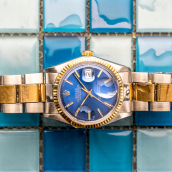
News & opinion
More room for resellers? The Oki Data and Lost Mary domain name disputes
In the recent Lost Mary UDRP case, the Czech Arbitration Court ventured a reinterpretation of the long-established Oki Data criteria. Koen de Winder recaps the basic principles of UDRP domain name disputes and the Oki Data criteria, and explores the possible implications of this latest decision.










